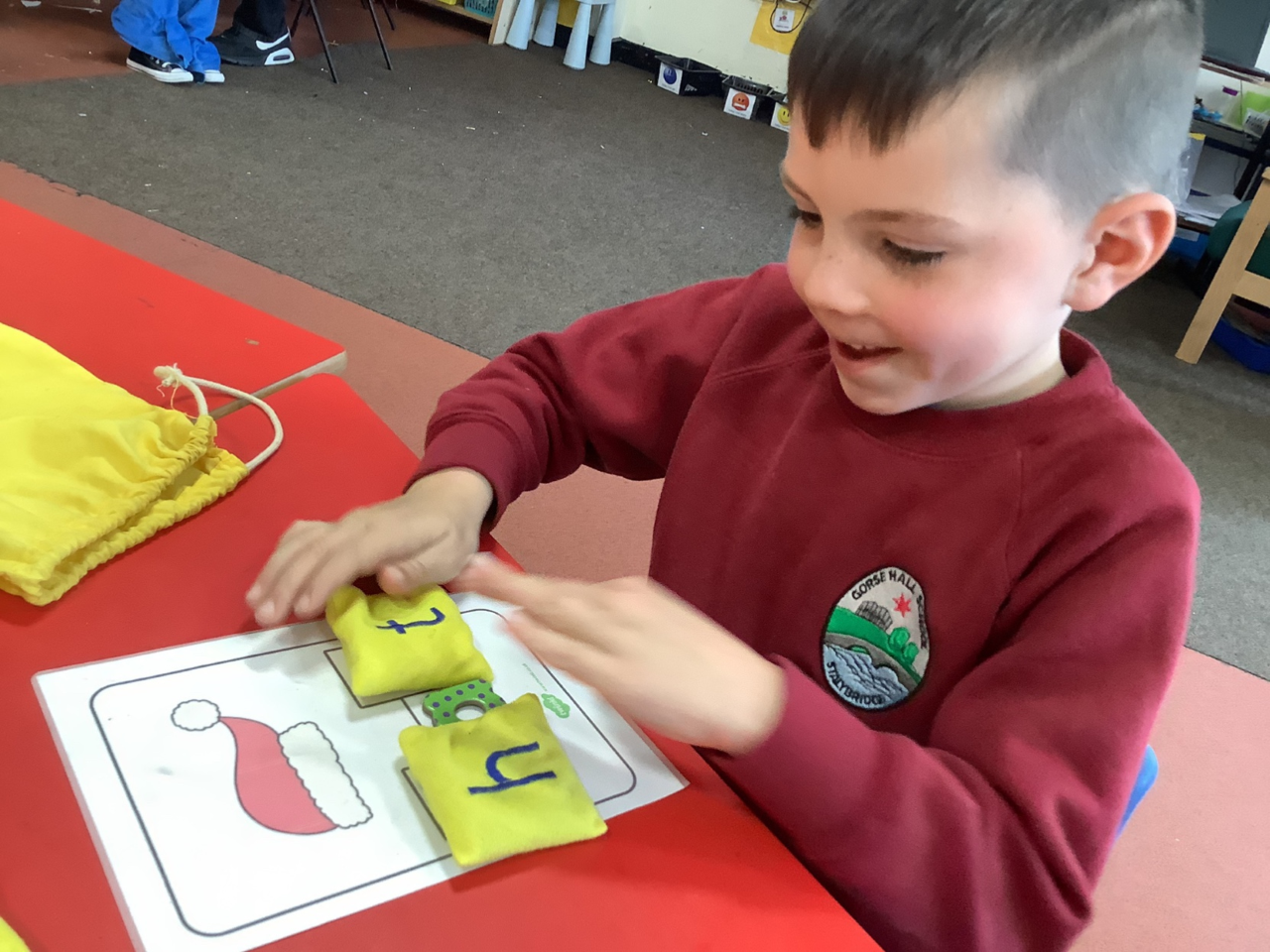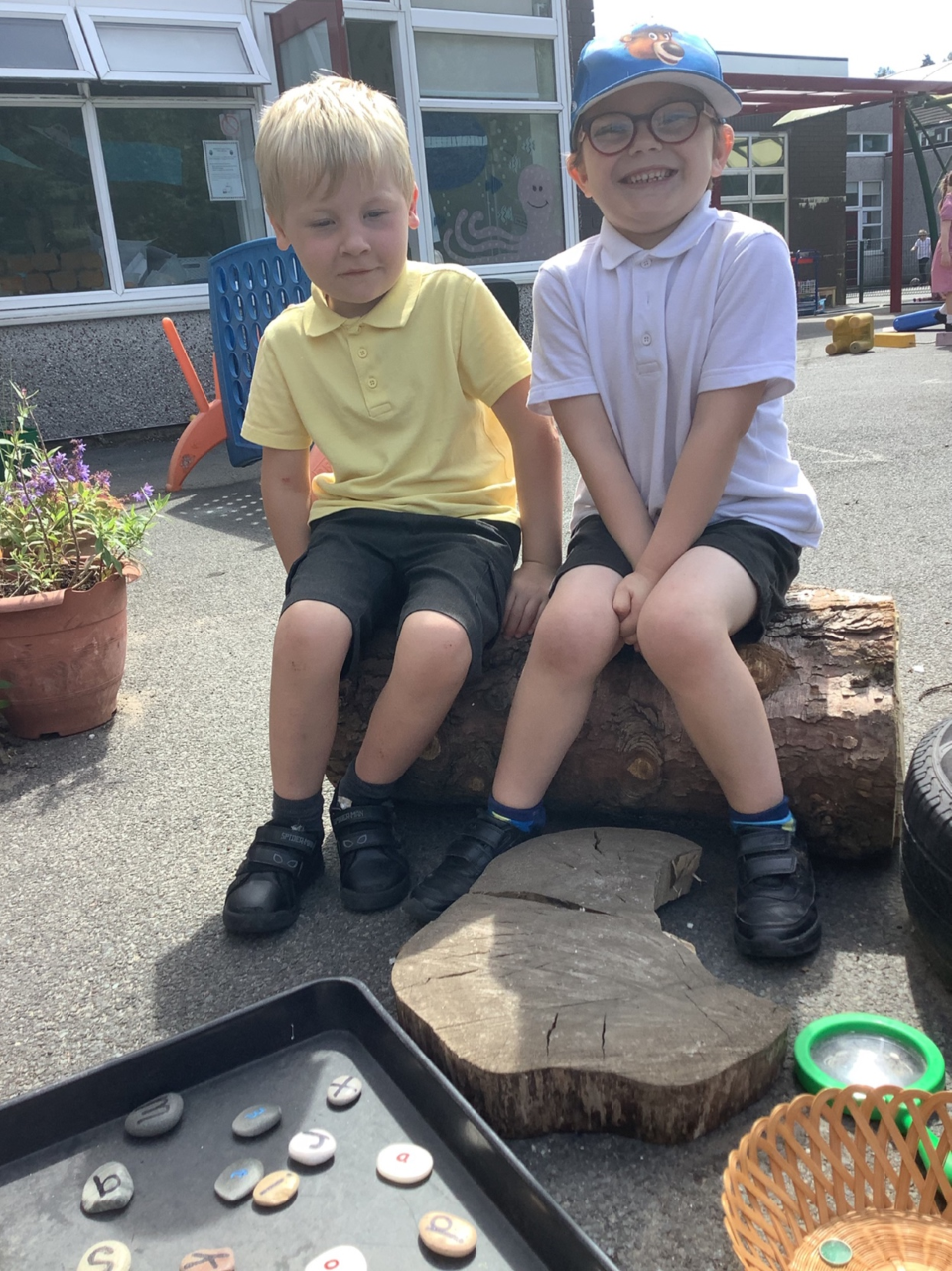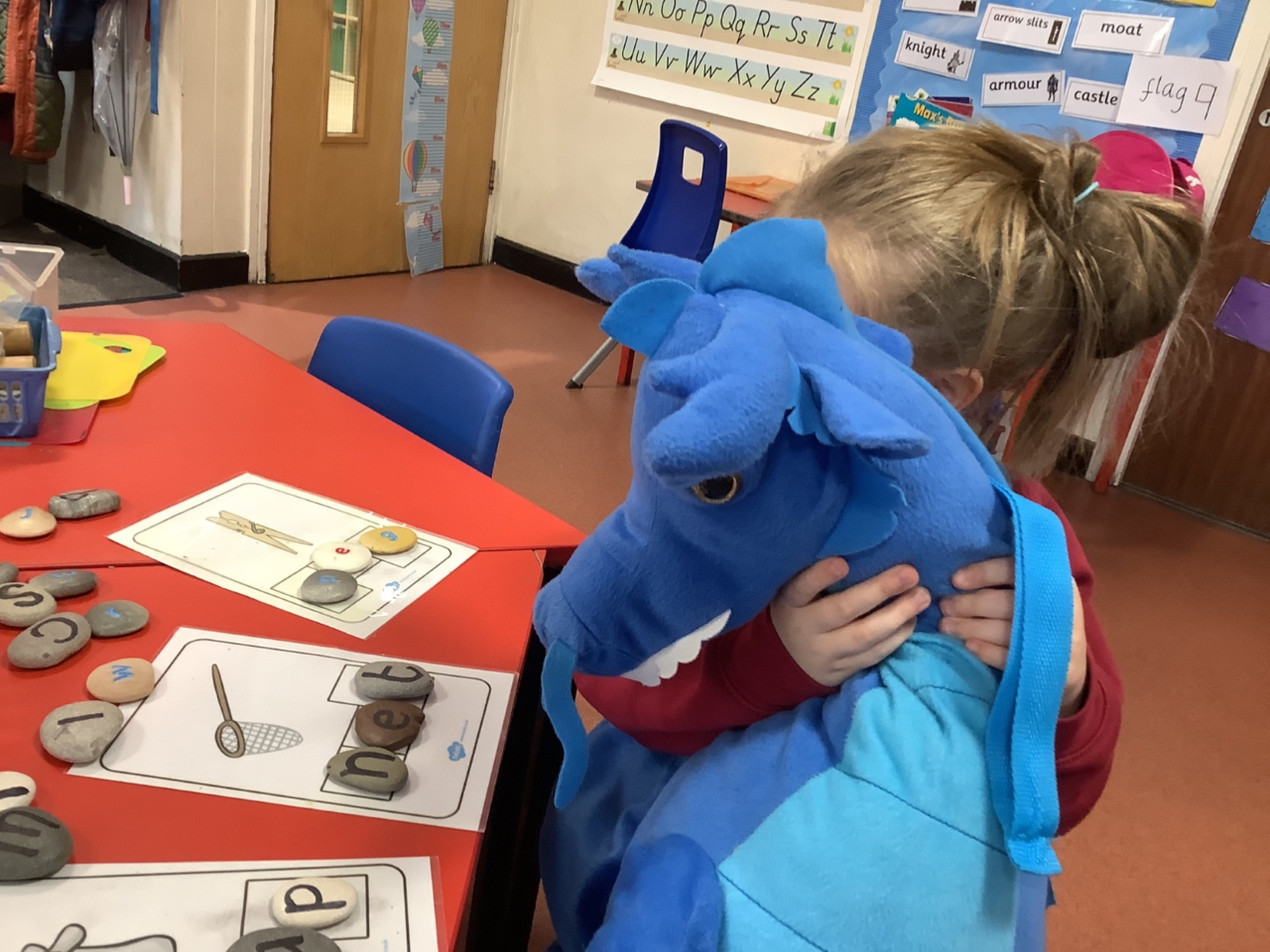Phonics



Phonics Intent
At Gorse Hall Primary and Nursery School the systematic teaching of phonics has a high priority throughout Foundation stage and Key Stage 1. We value reading as an important life skill and recognise the key role phonics plays in enabling pupils to become lifelong readers. We also value and encourage children to read for enjoyment and recognise how important an understanding of phonics is for achieving this.
Phonics implementation
Children will learn:
- grapheme‒phoneme correspondences in a clearly defined, incremental sequence.
- To blend phonemes (sounds) in order through a word to read it
- to segment words into phonemes for spelling
- that blending and segmenting are reversible processes
Phonics is taught daily in Reception and Year 1, following the First Class Phonics scheme.
A weekly phonics plan follows this sequence:
- Revisit/ review previous sounds and/ or tricky/ high frequency words previously taught.
- Teach new graphemes and structures for the week.
- Practise children are actively involved in reading new words through individual, paired and group games.
- Apply children apply their new learning in reading and writing.
- Assessment is on going so plans can be adapted to meet the needs of the group.
Multi-sensory activities are used when children are first learning sounds encompassing visual, auditory and kinaesthetic activities involving, for example, physical movement to copy letters shapes and sound, and manipulating magnetic or other solid letters to build words.
All teachers have been trained in First Class Phonics and follow a carefully planned structured approach. The idea is that all children are actively involved in phonics lessons.
Knowledge is constantly reviewed and reinforced in each phonic lesson and builds upon previous learning. Pupils are given opportunities to apply what they have learnt in guided reading or when they read aloud to an adult.
Children are assessed and those who are falling behind are identified early and catch up is put in place.
Children in Reception are expected to acquire knowledge of Phase 2 and 3 and even begin Phase 4.
Phonics Check – Year 1
Children in Year 1 will re-cap previous Phase 3 learning to ensure secure knowledge and move on to Phase 4 and 5.
Children in Year 1 are assessed against the statutory phonics check. This tests children’s ability to apply their phonic knowledge, reading words which are real and nonsense.
Phonics in other year groups
Children in Year 2 access phonics through other methods of teaching, such as grammar and guided reading. Children who did not pass the Phonic Test in Year 1 are re-entered for the test in Year 2. These children will continue to access phonics sessions to support them in making progress and teaching any potential gaps in learning.
Children moving into Year 3 should have acquired a secure phonic knowledge. For those children who have not, the teachers will continue to build upon previous teaching and learning from year 2 to continue to support those children to close the gap.
Impact
Throughout the teaching of Phonics, we assess children regularly. Information is also provided by the Phonics Screening check in Year One. However, at Gorse Hall Primary and Nursery School, we believe that reading is the key to all learning and so the impact of our phonics curriculum goes beyond and is embedded across the entire curriculum for our children in order for them to succeed.
